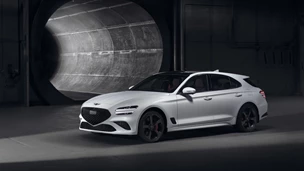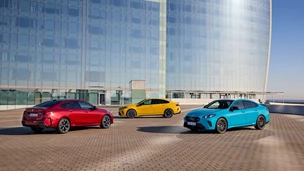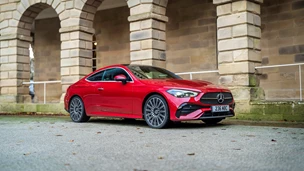When SEAT launched the Ibiza in 1984, few would have predicted that it would still be around 20 years later. With its three different body styles on offer, the Ibiza tailors for everyone from younger drivers to those who want a practical family estate.
Now in its fourth-generation, the model was facelifted for 2015, with a massive overhaul to its interior – something of which SEAT says is a result of listening to its customers. There have also been improvements to its engines, with efficiency improvements of up to 32 per cent.
The Ibiza has plenty of competition in its respective sector of the market, with some of its rivals belonging to the same VW Group as SEAT does. These include Volkswagen’s Polo and Audi’s A1, both of which are renowned for their up-market interiors. However, SEAT says the likes of the Ford Fiesta and Peugeot 208 are more appropriate rivals.
It is no secret that the Ibiza’s outdated interior has been one of the models pitfalls. But does its latest revamp earn it a notch up the supermini ladder? Read on to find out.
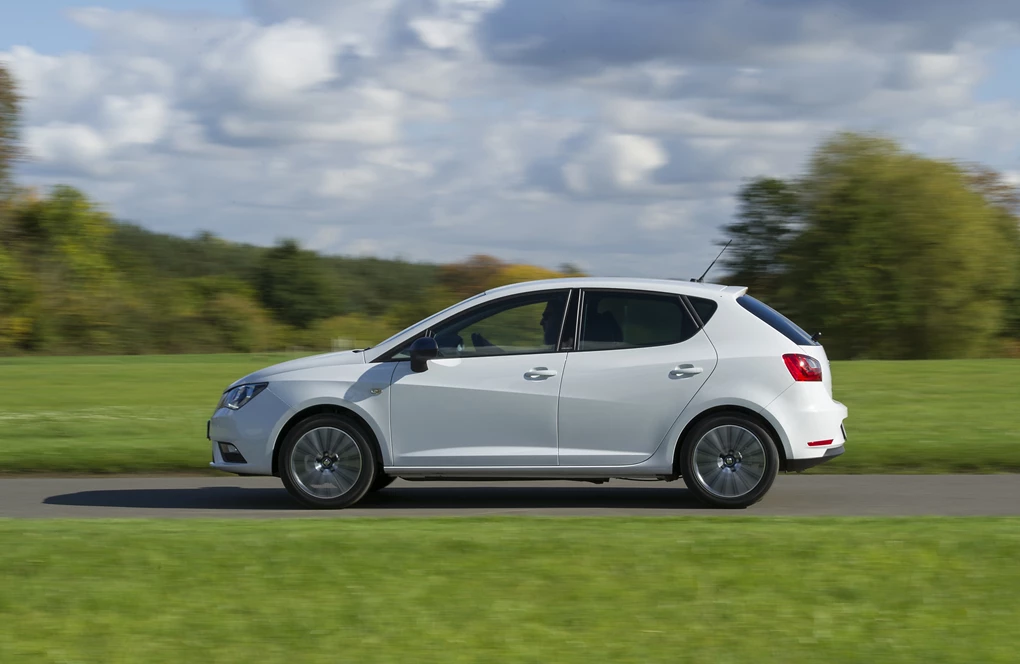
Performance
There are plenty of engine choices to choose from in the Ibiza – five petrols and two diesels. Although the three-cylinder 1.0-litre 94bhp turbo petrol has stolen a lot of the limelight, it is the entry-level 1.0-litre 74bhp naturally-aspirated petrol that is the bestseller.
Although it doesn’t have a turbo, this engine is actually pretty nippy and delivers plenty of power for the majority of journeys. Its figures on paper are not obviously impressive – zero to 62mph sprint of 14.8 seconds and a top speed of 107mph – but once you drive it you will see those figures don’t do it justice.
Other engines in the range include a 1.2-litre turbo petrol (89bhp or 109bhp) and a 1.4-litre turbo diesel with up to 104bhp – this unit offers impressive pulling power with up to 250Nm of torque at under 2,000rpm.
There is a choice of either five and six-speed manual transmissions or a seven-speed auto. The manual transmissions are a little notchy, especially when you reach fifth and sixth gear. The auto option is a DSG unit, meaning gear changes are swift and it can keep up with enthusiastic driving.
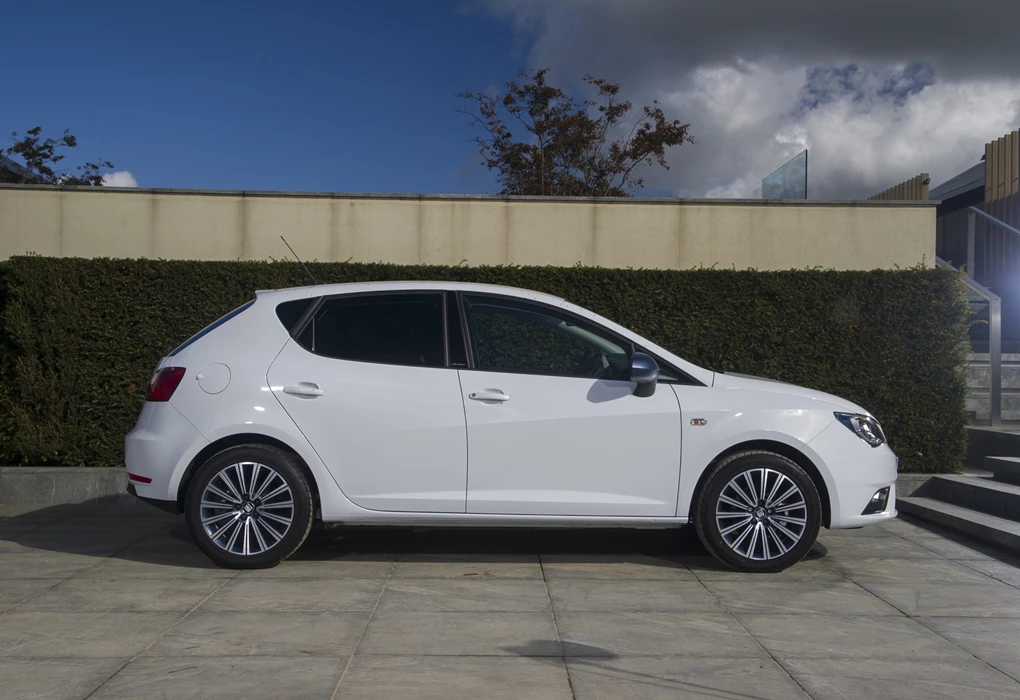
Ride and Handling
It isn’t the most engaging supermini to drive, certainly no Ford Fiesta, but it is definitely on the right side of the fence when it comes to overall enjoyment and capability.
Another small tweak, thanks again to the 2015 facelift, is improvements to the Ibiza’s steering and suspension. These improvements include lighter, more responsive steering and tuned dampers resulting in a comfier drive. Comfort was never really an issue with the Ibiza and this remains the same. In terms of steering, there is very little difference, with light, easy to manoeuvre steering at low speeds which weights up appropriately at higher speeds. It isn’t the most engaging supermini to drive, certainly no Ford Fiesta, but it is definitely on the right side of the fence when it comes to overall enjoyment and capability. There are two different suspension set-ups available, one focuses on comfort and the other on providing a sportier drive. In the range-topping FR trim, the sportier set-up is standard. Choosing the sportier suspension means ride comfort will be jeopardized a little, as is the case if you choose the larger wheels. Speaking of comfort, you may find there is a fair bit of wind and road noise in the Ibiza as well, especially at motorway speeds. It isn’t the most engaging supermini to drive, certainly no Ford Fiesta, but it is definitely on the right side of the fence when it comes to overall enjoyment and capability.
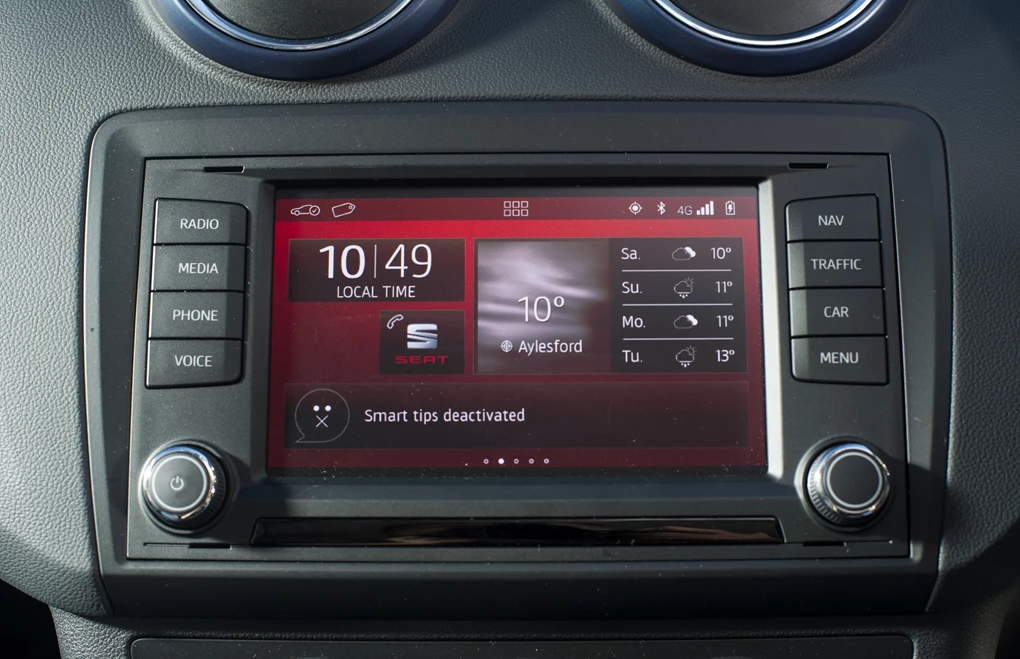
Interior and Equipment
The SEAT Ibiza has won numerous awards, including the “Best of the Best” Red Dot design accolade back in 2009.
The solid, plastic facia of the Ibiza is no more, as is the microwave-like radio read out. The new layout takes a lot of inspiration from the Leon hatchback, SEAT’s attempt to ramp up interior quality in the Ibiza. A new touchscreen set-up takes centre stage in the cabin, available in either 5-inch or 6.5-inch sizes. Although it is an improvement over the outgoing display, the standard black and white five-inch screen comes accompanied with a lot of dead space around it – which is subsequently filled out if you opt for the 6.5-inch – and this looks a little naff and aftermarket. This is improved slightly with the five-inch colour display (from SE upwards), but it still doesn’t look quite right. Go for the 6.5-inch however (from CONNECT and upwards) and it definitely has Leon flair about it. Other improvements include a soft-touch dashboard, a new steering wheel and a better quality trip readout behind the steering wheel – again, all traits of the Leon. Mirror Link, Apple CarPlay and Android Auto are also available on the new Ibiza, giving more flexibility when it comes to smartphone compatibility – although we are not a fan of the Mirror Link system. Standard kit across all models includes a five-inch black and white touchscreen infotainment system, USB compatibility, front-electric windows, steering wheel-mounted controls and Electronic Stability Control (ESC). It is not until the mid-range SE trim that kit gets more luxurious, with a five-inch colour touchscreen, LED daytime running lights, auxiliary input and 15-inch alloys. Go for the flagship FR trim and you get sat-nav, Bluetooth, a flat-bottomed FR steering wheel, rain-sensing wipers and Mirror Link. Space in the front seats feels plentiful and is fine in the back, as long as you are not six-foot. At 292 litres the Ibiza’s boot is on par with the Ford Fiesta and is bigger than the Polo’s. The rear seats also conveniently fold almost completely flat.
Cost
When it comes to starting price, the three-door Ibiza SC starts from £10,000, with the five-door starting from £12,315.
Running cost wise, the 1.4-litre 74bhp turbo diesel – the best-selling Ibiza diesel option – is your best bet, claiming a combined 80.7mpg. It also emits as little as 88g/km of CO2, making it very competitive against everything from the VW Polo to the Ford Fiesta. When it comes to starting price, the three-door Ibiza SC starts from £10,000, with the five-door starting from £12,315. This means the Ibiza three-door is cheaper than the VW Polo and Ford Fiesta three-door, but is more expensive than a five-door version of the Polo. When it comes to starting price, the three-door Ibiza SC starts from £10,000, with the five-door starting from £12,315.
Our Verdict
The Ibiza is a solid car with good performance, but driving dynamics are still a little off the best-in-class. The quality of the interior has been improved drastically, but it stills requires a decent trim to properly benefit from its new bells and whistles. Still, if driving dynamics are not such a big concern and you go for something mid-range and up, then the Ibiza can fit the bill. It is also one of the best-looking superminis out there, certainly more adventurous than the VW Polo and Ford Fiesta.

